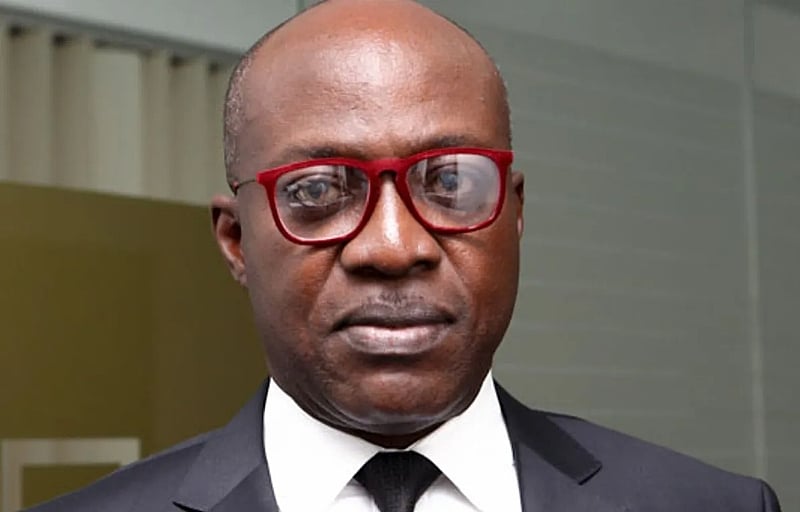The 2017/2018 banking sector cleanup in Ghana, an exercise aimed at sanitizing the financial landscape, has drawn sharp criticism from Mr. Frank Adu Jnr, former Managing Director of Cal Bank. He contends that the drastic measure of shutting down several banks was an ill-informed decision, causing more harm than good, and could have been entirely avoided through alternative strategies. He argues that the government’s justification for the closures, citing mismanagement and liquidity challenges, overlooked the possibility of targeted interventions that could have addressed the root causes without resorting to such drastic measures. The financial resources deployed for the cleanup, in his view, could have been more effectively utilized to recapitalize struggling banks, preserving jobs and safeguarding depositors’ funds. He questioned the rationale behind punishing thousands of employees and customers for the alleged wrongdoings of a few board members and executives, highlighting the disproportionate impact of the closures on the wider banking ecosystem and the economy as a whole.
Mr. Adu Jnr advocates for a more nuanced approach to dealing with financial sector distress, drawing parallels with Ghana’s historical experience. He referenced the era under General I.K. Acheampong when struggling banks, burdened by bad debts, were supported through government-issued bonds rather than being shuttered. This approach, he suggests, could have been a viable alternative in 2017/2018, preventing the widespread disruption caused by the bank closures. He further revealed that during a meeting with President Nana Akufo-Addo and his ministers, he proposed a simpler solution: the government settling its outstanding debts to the banks, a move he believed would have alleviated the liquidity crisis. However, his proposal reportedly met with strong opposition within the administration. This anecdote underscores, in his view, the government’s apparent unwillingness to consider alternative solutions.
While acknowledging the difficulty of restoring licenses to defunct banks, Mr. Adu Jnr suggests an alternative form of redress. He proposes that former shareholders of the banks merged into Consolidated Bank Ghana (CBG) should be granted equity stakes in CBG. This, he argues, would allow them to recoup some value from their lost investments, offering a measure of compensation for the financial losses incurred due to the bank closures. This proposal acknowledges the finality of the bank closures while also seeking a fairer outcome for those who lost their investments. It represents a middle ground between reversing the closures entirely and accepting the total loss of shareholder value.
Mr. Adu Jnr extends his criticism to the overall economic management under former Finance Minister Ken Ofori-Atta, whose tenure he describes as disastrous, particularly during the final four years of the Akufo-Addo government. He singles out the inclusion of pension funds in the domestic debt exchange programme as a particularly egregious decision, contrasting it with the UK’s approach, where the central bank intervened to purchase bonds and protect pensioners’ savings. This comparison highlights, in his perspective, a lack of foresight and concern for the vulnerable within Ghana’s economic policy-making. The inclusion of pension funds, he argues, unnecessarily exposed pensioners to financial risk and undermined their retirement security.
The core of Mr. Adu Jnr’s argument revolves around the belief that the 2017/2018 banking crisis could have been managed more effectively without resorting to bank closures. He posits that the government’s chosen course of action was not only disruptive but also economically counterproductive. The lost jobs, eroded investor confidence, and the substantial financial cost of the cleanup, in his view, could have been avoided. His proposed alternatives, including recapitalization, debt settlement by the government, and the issuance of bonds, reflect a preference for less drastic measures that prioritize the preservation of existing financial institutions and the stability of the financial sector.
Ultimately, Mr. Adu Jnr calls for a more thoughtful and inclusive approach to financial sector reform in the future. He emphasizes the need for greater consideration of the broader economic consequences of policy decisions and the importance of engaging with stakeholders to explore alternative solutions before resorting to drastic measures like bank closures. This, he believes, will lead to more sustainable and equitable outcomes, protecting the interests of all stakeholders, including employees, customers, and shareholders, while ensuring the long-term health of Ghana’s financial sector. He advocates for a move away from the top-down approach that characterized the 2017/2018 cleanup towards a more collaborative and consultative process.


